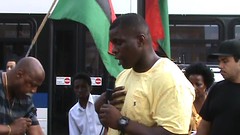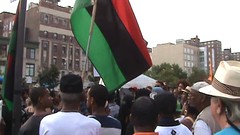High court: Suspects must explicitly invoke right to silence
The Supreme Court on Tuesday ruled that a criminal suspect must explicitly invoke the right to remain silent during a police interrogation, a decision that dissenting liberal justices said turns the protections of a Miranda warning “upside down.” The court ruled 5-4 that a Michigan defendant who incriminated himself in a fatal shooting after nearly three hours of questioning thus gave up his right to silence, and the statement could be used against him at trial. “Where the prosecution shows that a Miranda warning was given and that it was understood by the accused, an accused’s uncoerced statement establishes an implied waiver of the right to remain silent,” Justice Anthony Kennedy wrote for the court’s conservatives. In the case, suspect Van Chester Thompkins remained mostly silent for three hours of interrogation after reading and being told of his rights to remain silent and have an attorney. He neither acknowledged that he was willing to talk nor indicated that he wanted questioning to stop. But detectives persisted in what one called mostly a “monologue” until asking Thompkins if he believed in God. When asked, “Do you pray to God to forgive you for shooting that boy down?” Thompkins looked away and answered, “Yes.” The statement was used against him, and he was convicted of killing Samuel Morris outside a strip mall in Southfield, Mich. The U.S. Court of Appeals for the 6th Circuit said Thompkins’s silence for two hours and 45 minutes of the interrogation “offered a clear and unequivocal message to the officers: Thompkins did not wish to waive his rights.” Kennedy said it was not clear enough. “If Thompkins wanted to remain silent, he could have said nothing in response to (the detective’s) questions, or he could have unambiguously involved his Miranda rights and ended the interrogation,” wrote Kennedy, who was joined by Chief Justice John Roberts and Justices Antonin Scalia, Clarence Thomas and Samuel Alito. “The fact that Thompkins made a statement about three hours after receiving a Miranda warning does not overcome the fact that he engaged in a course of conduct indicating waiver.” Kennedy said the court’s new rule was an extension of the logic in a previous case that said a suspect must affirmatively assert his right to counsel. But Justice Sonia Sotomayor accused the majority of casting aside judicial restraint and creating a rule that marks “a substantial retreat from the protection against compelled self-incrimination” that Miranda established more than 40 years ago. “Today’s decision turns Miranda upside down,” Sotomayor wrote. “Criminal suspects must now unambiguously invoke their right to remain silent, which, counterintuitively, requires them to speak.” via denverpost.com










